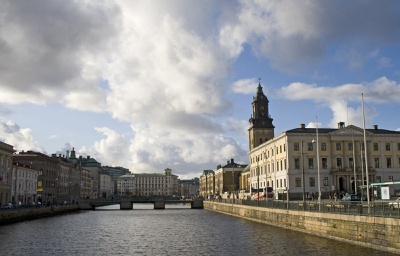 @Thoursie
@Thoursie
Jessica Richter und Oliver Kühschelm sind bei der European Social Science History Conference 2023 mit Vorträgen vertreten.
- https://www.ruralhistory.at/de/veranstaltungen/sonstige-veranstaltungen/esshc-neither-family-members-nor-workers-foster-children2019s-social-rights-and-in-voluntary-contributions-to-austrian-farms-ca-1900-1938
- IGLR auf der ESSHC 2023 in Göteborg
- 2023-04-12T08:30:00+02:00
- 2023-04-15T16:00:00+02:00
- Jessica Richter und Oliver Kühschelm sind bei der European Social Science History Conference 2023 mit Vorträgen vertreten.
-
Was
Termin Highlight -
Wann
12.04.2023 08:30 bis 15.04.2023 16:00 (Europe/Vienna / UTC200) -
Wo
Göteborg, Schweden -
Termin zum Kalender hinzufügen
iCal
Die große European Social Science History Conference wird alle zwei Jahre veranstaltet und versammelt Wissenschaftler*innen aus zahlreichen Ländern, die historische Phänomene mit sozialwissenschaftlichen Methoden untersuchen. Die Konferenz in Göteborg dauert von 12. bis 15. April 2023.
Jessica Richter (IGLR), Nicola Schalkowski (FU Berlin) und Léa Renard (Universität Heidelberg) haben für die ESSHC 2023 das Panel „Livelihoods at the intersection between work/non-work and free/unfree labour“ organisiert.
Im Rahmen dieses Panels hält Jessica Richter am Sa, 15. April ab 11.00 Uhr den Vortrag „Neither Family Members nor Workers: Foster children’s social rights and in/voluntary contributions to Austrian farms (ca. 1900-1938)“.
Abstract:
Family and household constellations differed significantly in Europe. This particularly affected the upbringing of children whose parents died at an early age or were unable to care for them. In Austria at the beginning of the 20th century, they were still often placed as foster children in the households of relatives or strangers, many of whom ran a small or medium-size farm. Particularly servants’ illegitimate daughters and sons shared this experience.
From an early age, foster children were required to "help out", meaning that they were gradually assigned to a wide variety of work in the agricultural business and the household. In addition, foster parents often kept them on the farm well after leaving school, with or against their will. There, now that they were fully fit for service, they were expected to compensate for their childhood board and lodging, as contemporaries often put it.
This paper explores the contributions of foster children to agricultural household economies at the intersection of un/free work and non-work. I discuss, on the one hand, how and against what other perspectives these children and young people were categorised and placed in the hierarchy of workers at and beyond the family farm. On the other hand, I examine foster children’s activities in the context of their integration into the peasant household and their opportunities to participate in its resources. How did administrative authorities, foster parents or, retrospectively, foster children themselves categorize and assess their activities – as work, an expression of household membership or something else? How and to what extent are conceptual classifications like un/free and in/voluntary labour useful to describe these contributions?
So far, research on the foster child system, the children’s lives and work relations is still rare. Especially a detailed examination of such work arrangements before the background of the intersections of un/free labour and work/non-work is lacking. On the one hand, the boundaries between household integration, family membership or non-membership and work were often unclear. Although foster children sometimes made considerable contributions to the household economy, they were hardly recognised as workers, let alone paid, even after the end of compulsory education. This also affected new social rights such as health insurance, which remained controversial and contested but became compulsory from around 1921, even in agriculture. Farmers had far-reaching possibilities to exempt family workers, including foster children, from insurance. Despite their contributions, moreover, many foster children were not accepted as family members or as full members of the household. While for some this "only" concerned their rank in relation to the farmers’ biological children, others report in retrospect of "slave labour" and particularly bad living conditions. This paper is based on former foster children’s autobiographical records as well as on disputed cases concerning health insurance. The accounts and case files show the diversity of practices as well as modes of household integration, which often hardly conformed to official categorisations.
Oliver Kühschelm (IGLR) hält im von Klara Arnberg (Stockholm) und Nikolas Glover (Uppsala) organisierten Panel „War, Crisis and Consumption“ am Fr, 14. April ab 14.00 Uhr einen Vortrag über „The Moral Imperative of Patriotic Consumption under Military and Economic Threat“.
Abstract:
The Moral Imperative of Patriotic Consumption under Military and Economic Threat. How the “Buy Austrian Goods”-campaign of the 1920s Imagined its Early Modern Forerunners
In the interwar years a propaganda campaign exhorted Austrian consumers to prefer national products. It was a characteristic phenomenon of a period of economic crisis and deglobalization. The campaign was also typical in that it tried to lay claim on the national past as a means of legitimizing its concerns and as a source of inspiration for crafting its propaganda. Among the salient features of the Austrian campaign was the moralizing reimagination of how catholic baroque and Habsburg rule had reacted to the challenges of the 17th century. The campaign constructed a suitable version of this past but its choices brought into play a mix of fiction, myth-making, and history. Reacting to the destructions of the Thirty Years' War and the threat of Ottoman invasion cameralists in the service of the Habsburg emperor imagined something akin to a national economy. In their treatises they also included exhortations to consumers that sound a lot like “Buy Austrian Goods” propaganda from the 20th century; or rather “Buy Austrian Goods” sermonizing from the interwar years was made to sound like 17th-century rhetoric. Hawking Austrian products to Austrian consumers was on the one hand placed in the context of industrialized modernity and on the other it conserved and confected echoes of a more distant past when the ‘existence’ or relevance of nations and nationalism, let alone an Austrian nation, is at least controversial.